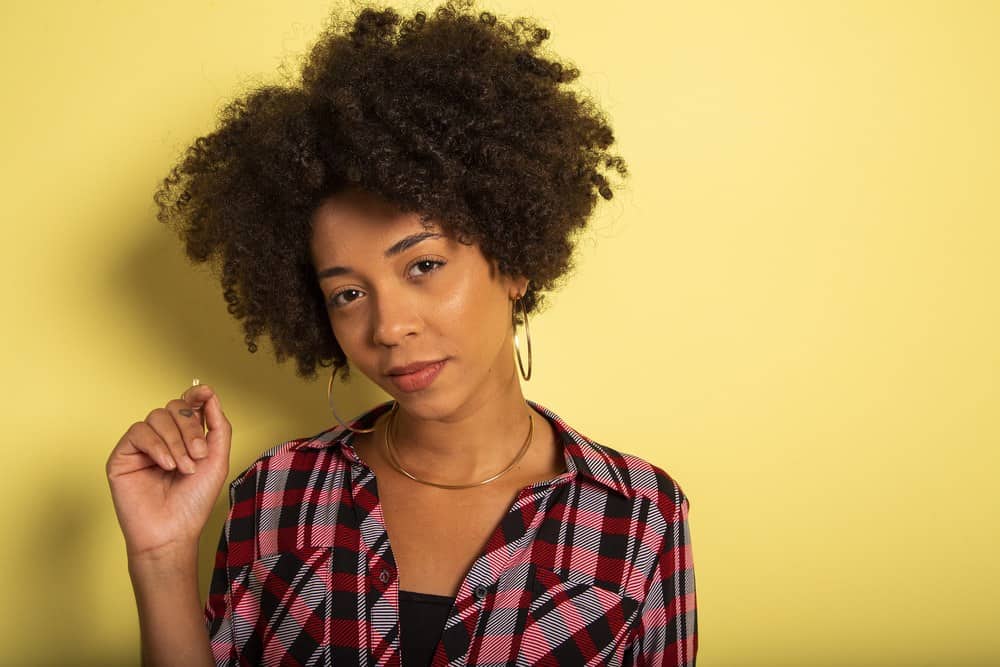
If you're looking to imbue your hair care routine with the sweet smell of success, then you may want to try the ever-fragrant ylang-ylang oil extract.
It's an emerging hair care oil within the curly hair community, and for a good reason. In this article, we'll discuss the benefits of using ylang-ylang oil for hair growth, hair loss, scalp care, and so much more.
Table of Contents
How to Use Ylang Ylang Oil for Hair
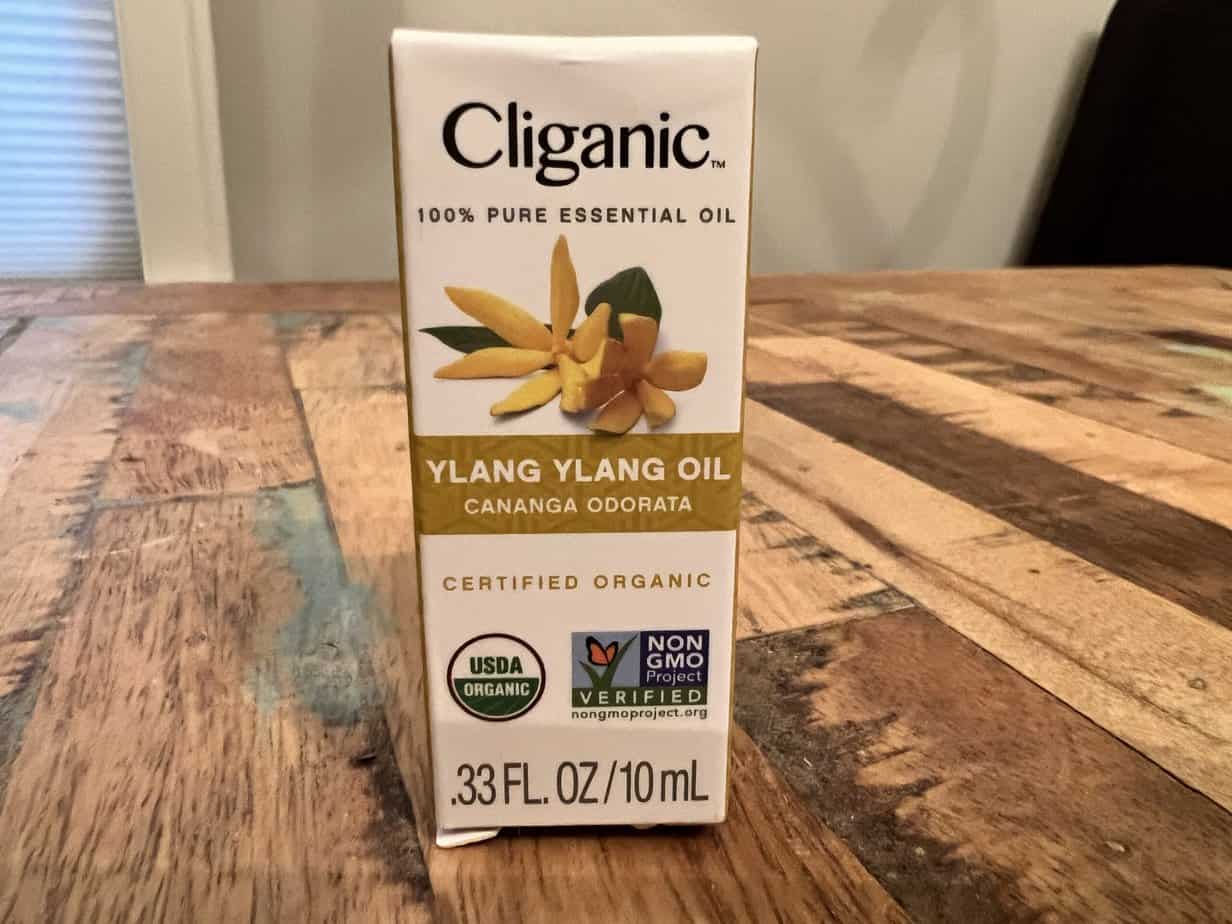
One of the most popular ways to use ylang-ylang oil for your hair is via a hot oil massage. The warmth and moisture combined help the oil soak into the follicles and into your scalp.
Once you’re done, rinse your hair out with shampoo (make sure it’s mild) and then dry it off. For the best results, you should repeat the process every week.
If you are able to purchase enough to load into a bottle, you can spritz it on your hair as needed to give it a bit of extra moisture, softness, and life during the day.
You can also add ylang-ylang oil to your existing shampoo. Add a few drops to your shampoo bottle and use it as you would normally.
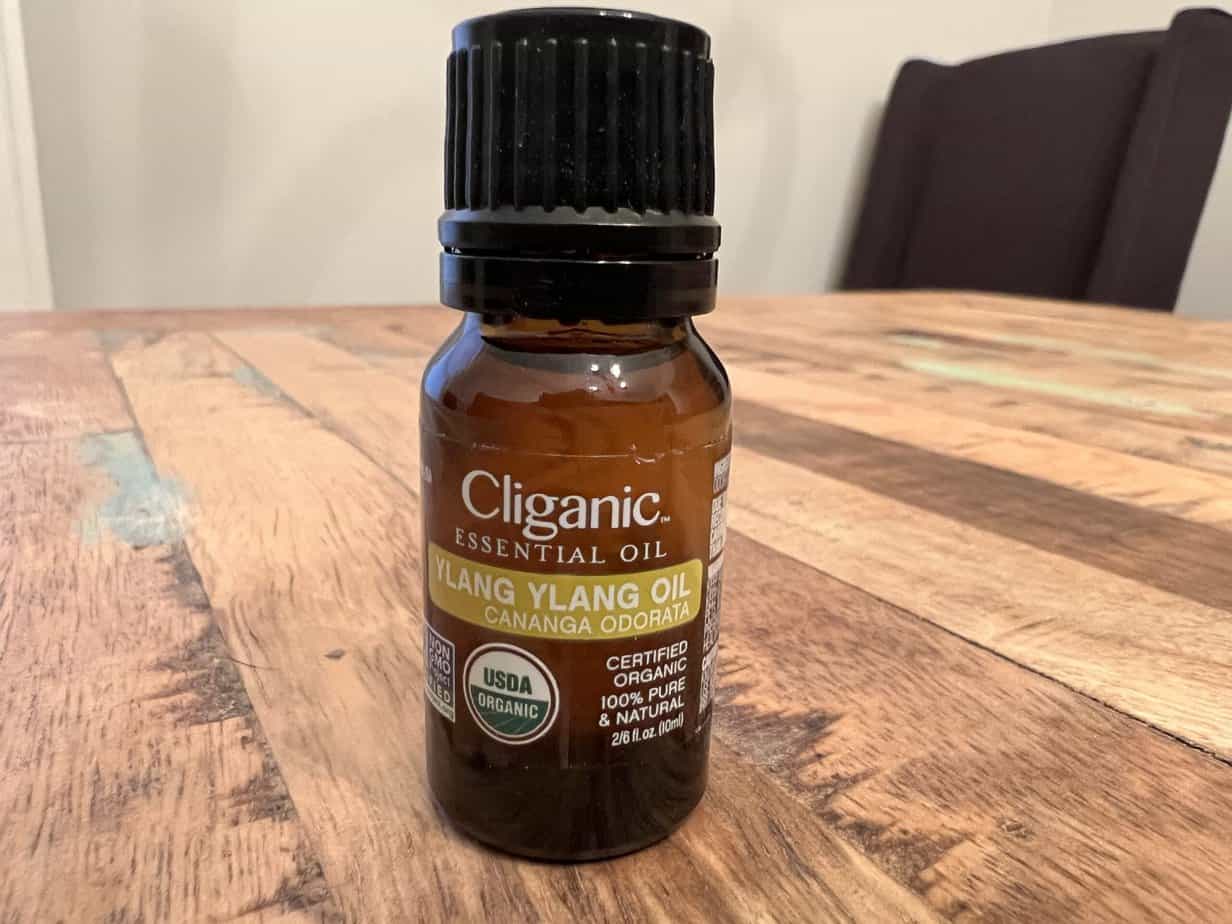
Finally, you might consider using ylang-ylang oil as part of a conditioning mix. Mix equal parts of avocado oil and coconut oil, and then add 10 drops of both ylang-ylang and sandalwood oil.
Mix it all together. This mix will be even more potent than those described above, so you’ll want to use it sparingly.
That said, when used properly, it can be incredibly effective, especially in adding extra softness to your hair and dealing with hair damage and brittleness.
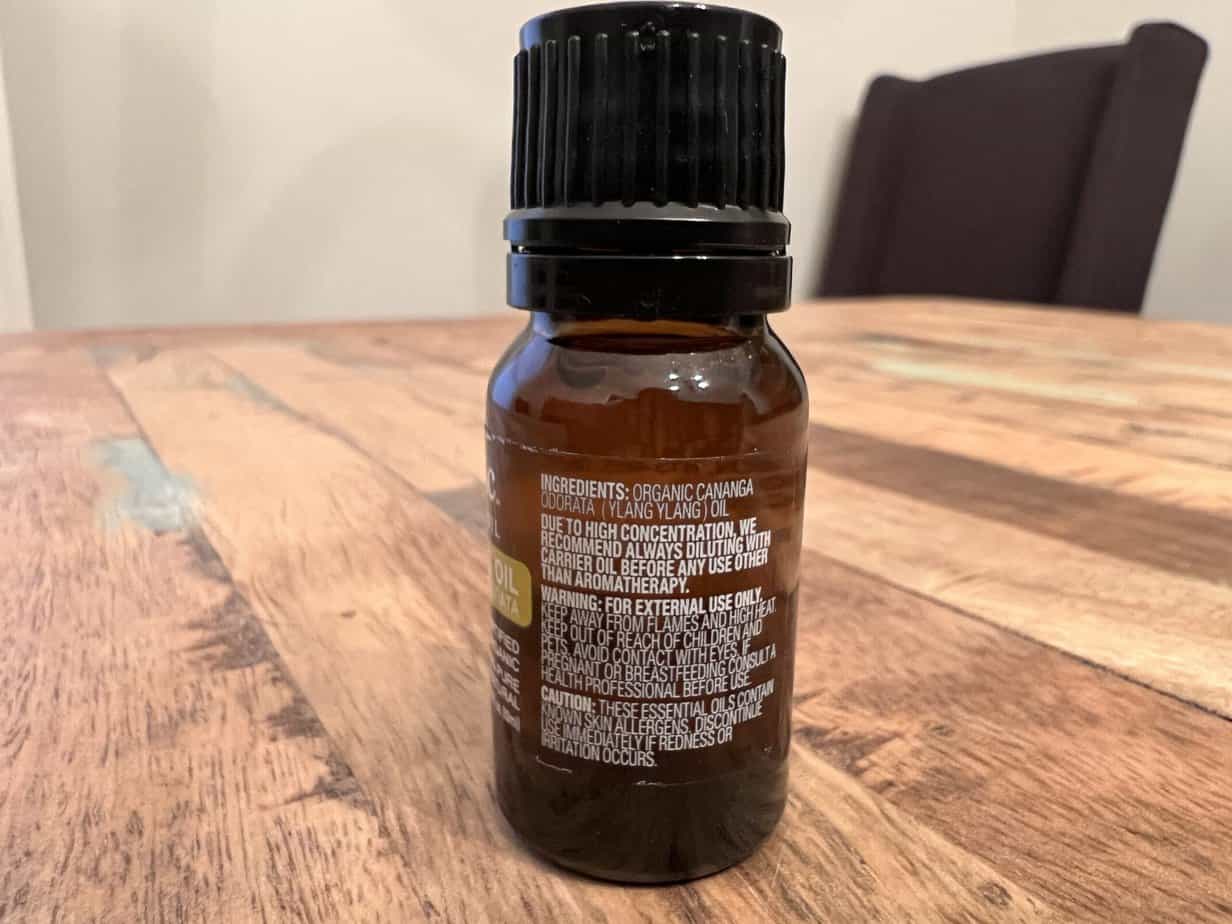
If you suffer from split ends, this may be the best mixture to consider, as it is especially adept at dealing with split ends.
One thing you definitely don’t want to do is to overdo it. Adding too much of any essential oil to your hair or pouring gobs of it directly onto your scalp can prove damaging and even potentially painful.
The bergamot oil from this brand has a great scent. Only a few drops are needed, but caution is advised for those with skin allergies. Consider the small size and price when buying the bergamot oil, and test for allergies before use.
What Does Ylang Ylang Do for Hair?
Ylang-ylang oil contains linalool, which has several medical benefits, not the least of which is the fact that it can help relieve stress, anxiety, and depression, while its sedative properties can also help put you to sleep.
Taken further, those stress and anxiety-relieving properties can also work as an anticonvulsant to combat spasms and serve as general pain relief.
Linalool is also sometimes included in detergents as a cleaning agent and includes antimicrobial properties, thus serving as an antiseptic.
In addition to ylang-ylang oil, it can also be found in cinnamon, rosewood, mint, and similar plants, while its citrusy scent is reminiscent of lavender.
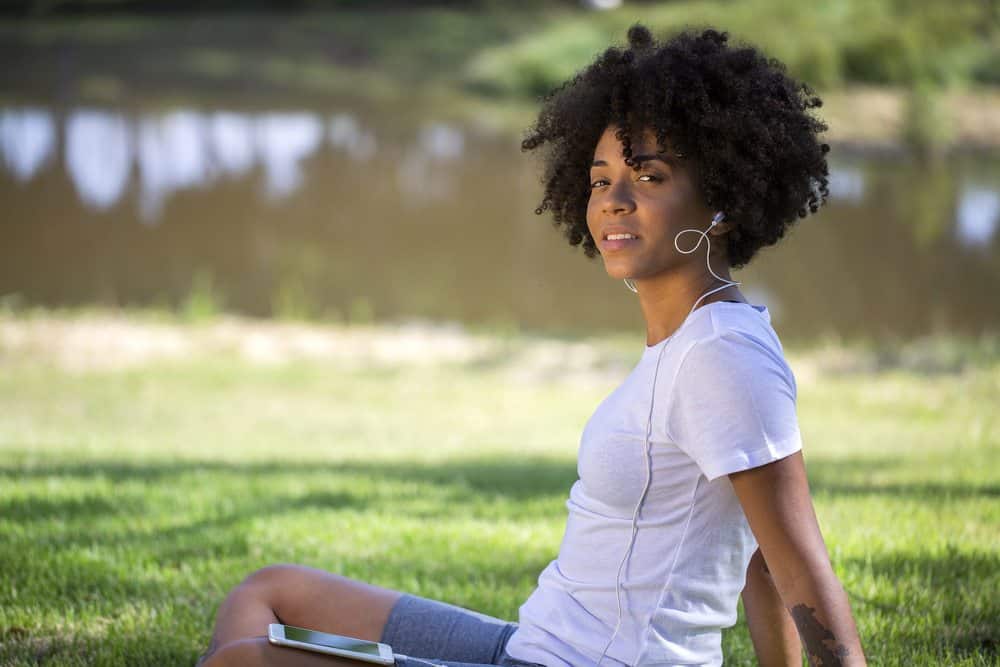
Ylang-ylang oil is used a lot in perfumes, but its fragrant nature has also made it a natural fit for aromatherapy.
Substances used in aromatherapy are inhaled to stimulate the limbic system in such a way as to trigger positive emotions with all the potential emotional and physical benefits that may follow from that.
It is important to note that medical research on ylang-ylang oil is limited. However, what research has been done gives some initial evidence to back up those aromatic claims.
A 2006 study in Phytotherapy Research and one in the International Journal of Neuroscience in 2008 both provided evidence that inhaling aromatic ylang-ylang can produce a calming effect.
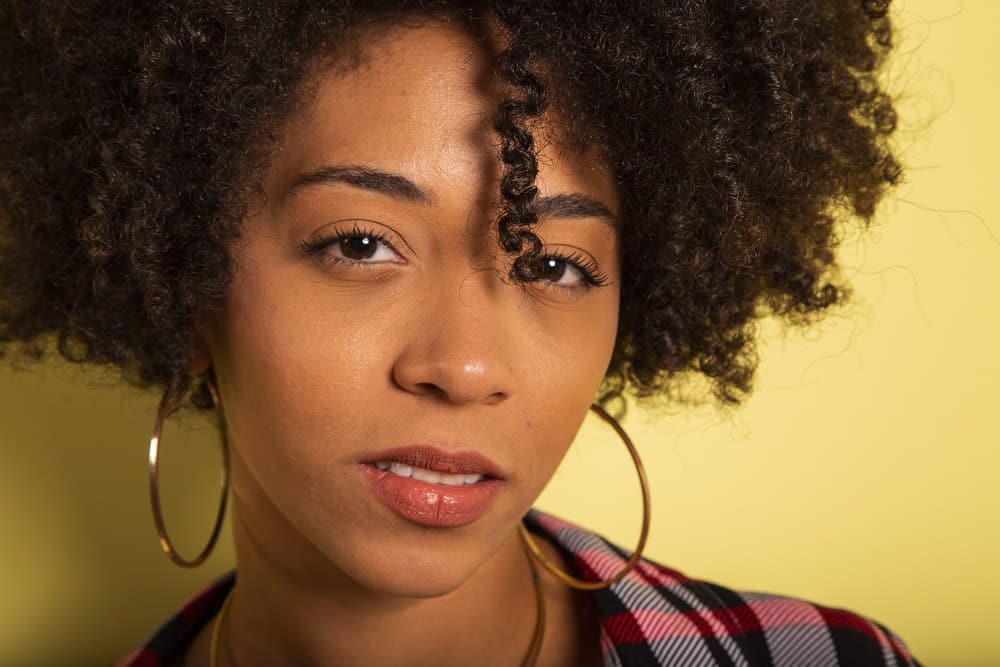
Adding to that body of evidence is a paper from 2016 that measured linalool’s impact on rats' stress and found that it was effective as an antidepressant. Further research was released in 2018 and once again reiterated those findings.
The benefits don’t stop there.
A 2012 study from Evidence-Based Complementary and Alternative Medicine indicated that those calming benefits may extend further and be able to help with high blood pressure.
The study had subjects inhale a placebo aroma or ylang-ylang, lavender, or marjoram essential oils, with promising results.
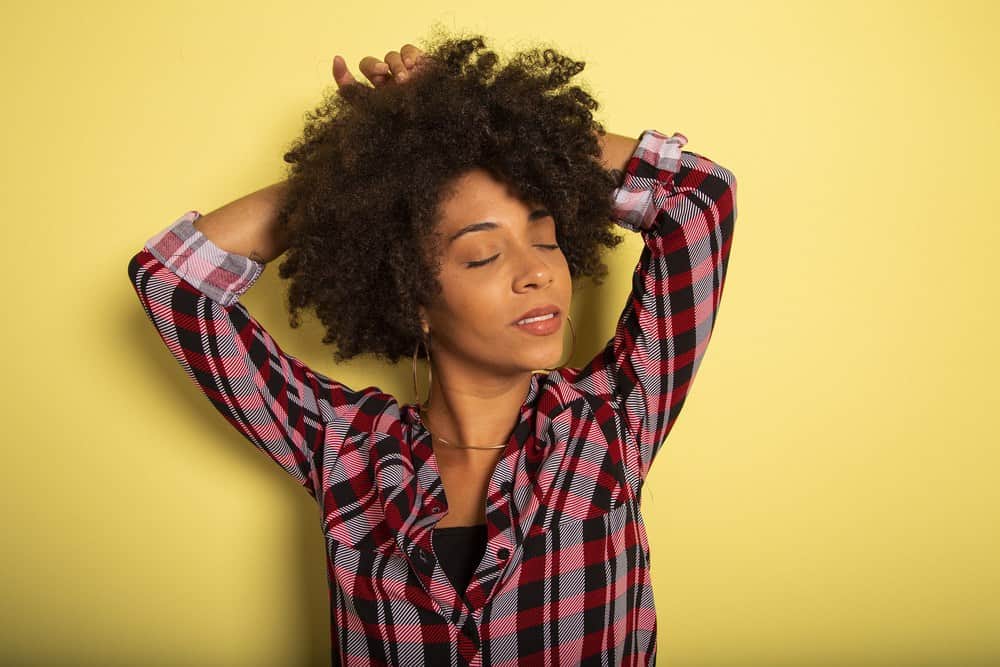
There are several other potential uses for ylang-ylang oil, including:
- Athlete's foot
- Colds and coughs
- Depression
- Fevers
- Headaches
- Infections and insomnia
- Muscle tension
There is also evidence that ylang-ylang oil can serve as an anti-inflammatory agent, which, as we’ll see, can be especially helpful when it comes to treating your scalp.
In addition, ylang-ylang oil users have reportedly been able to make use of it for pain relief, although this has even less in the way of scientific trials to back it up.
Still, that would be consistent with its role as a stress relief agent and the properties that make that possible.
Some users have reported feeling enhanced libido after using it.
Ylang-ylang oil can also work as a natural insect repellent, which, as we’ll see, can make it quite helpful for hair care.
It has also been used as a cooking ingredient to add flavor to dishes, and a 2008 review in Food and Chemical Toxicology found no significant allergic or toxic qualities.
That said, you should not take ylang-ylang oil orally without guidance and approval from a medical professional.
As with most essential oils, there is always the possibility it could lead to skin irritation if you have a reaction to it, so you should be sure to start with a small application to your arm to make sure that’s not the case.
Pregnant women, as well as children, should always consult a doctor before using essential oils.
The Benefits of Ylang Ylang for Hair and Scalp Care
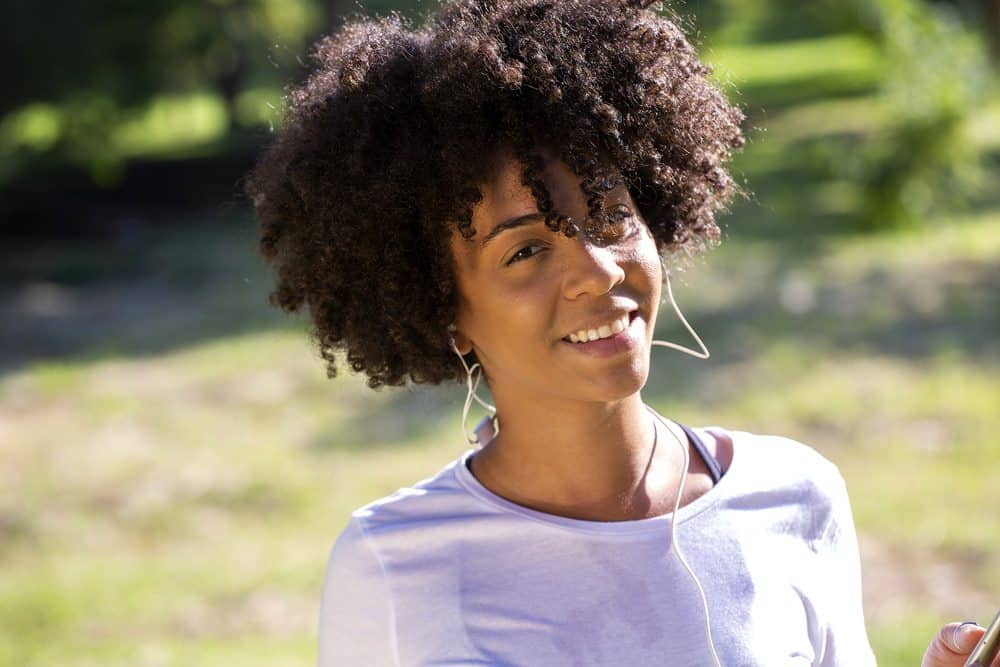
1. Dry Scalp
First, let’s take a step back and look at one of the most common causes of scalp and hair problems: dry scalp. Good hair health is literally rooted in good scalp health.
When your scalp becomes dried out, it can start to flake, which in turn can make it that much easier for follicles to be dislodged if they are already loose.
However, even more problematic is that a scalp that has become dried out likely isn’t properly nourished and cannot sustain a healthy head of hair.
As the soil dries out, it becomes inhospitable for grass and plants, and a similar thing happens when your scalp becomes dried out as well. This is where soothing and moisturizing agents such as ylang-ylang oil come in.
They can help combat dry scalp, moisturizing and softening it, thus making it that much easier for hair to grow back healthily once more.
One big reason for this is the fact that ylang-ylang oil can increase sebum production.
Sebum is important because it forms a barrier between your skin and the elements, helping to keep your scalp moisturized to avoid the aforementioned consequences of it drying out.
In addition to stimulating the sebaceous glands, which are responsible for increased sebum production, it also serves as a natural conditioner and moisturizer.
Taken together, these factors allow ylang-ylang oil to not only soothe dry scalps and stop them from flaking but to also stop hair from becoming dry and lifeless.
You don’t need to choose between these options, either.
Ylang-ylang oil can be massaged directly into the scalp or spritzed into your hair, or both – and in fact, a multipronged approach may be your best bet for getting the most out of this hair care option.

2. Fragrant Scent and its Soothing Effects
Again, “ylang-ylang” is actually the name of the perfume extract, and we’ve already talked at length about how appropriate that is.
Whether you’re looking to take advantage of its soothing effects or simply want to imbue your hair with a fine fragrant scent, ylang-ylang oil is an interesting multipurpose hair care option to consider.
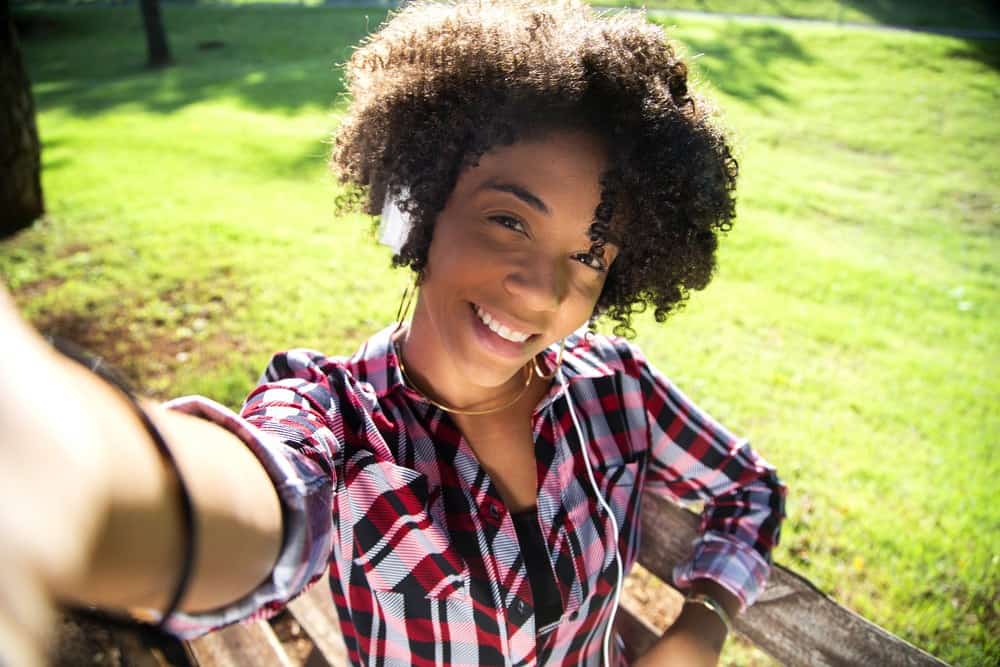
3. Smooths, Softens, and Conditions Hair
Let’s be fair – for as much as we all care about the healthy side of hair maintenance, we all want our hair to look good as well.
There’s something so satisfying about hair that’s silky-smooth and soft, and this is another area where ylang-ylang oil can prove beneficial.
Ylang-ylang hair can also help prevent your hair from becoming brittle, which in turn can lead to damaged strands.
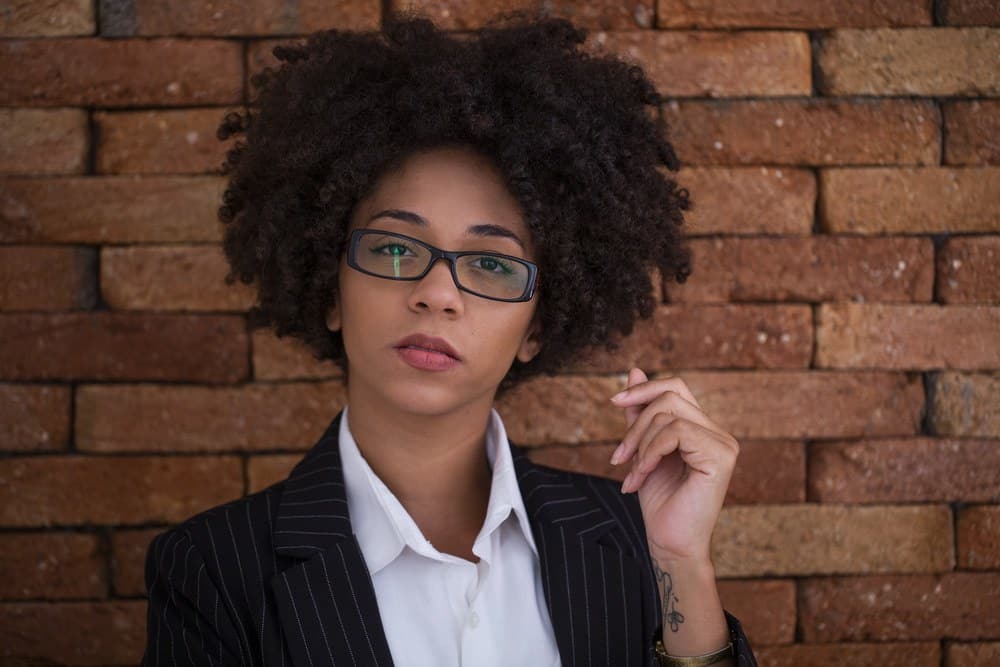
4. Fight Hair Loss
Since the Victorian period, ylang-ylang has been used as an additive in hair loss prevention formulas as well as concoctions meant to improve hair strength.
On the one hand, the Victorian period was infamous for just how much medical quackery it produced.
On the other hand, the other sections on this list demonstrate just how versatile ylang-ylang oil can be as a hair treatment, so it isn’t hard to see how it could be used to fight hair loss and strengthen hair follicles as well.
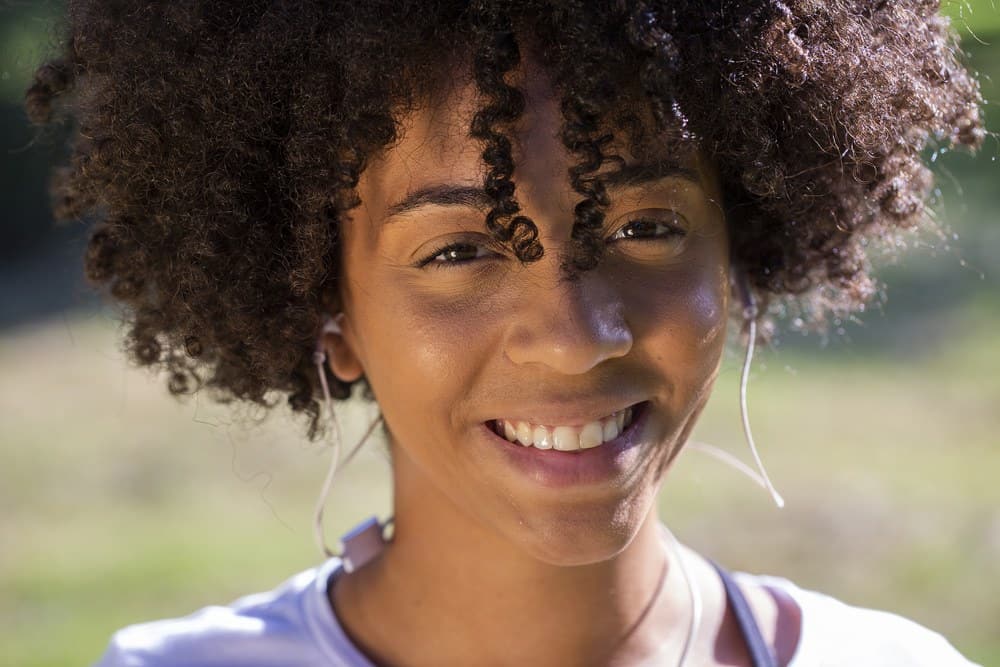
5. Antimicrobial Properties
As mentioned above, ylang-ylang oil contains linalool, which can be used as an antimicrobial agent.
This can prove immensely beneficial since microbial invaders are the last thing you want when trying to improve scalp and hair health.
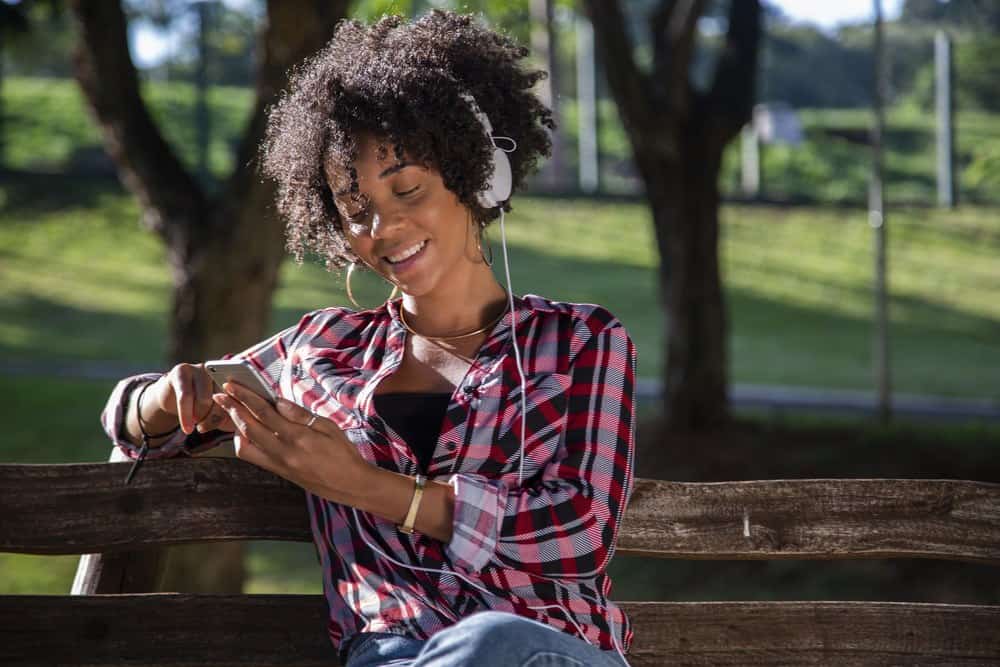
6. Insect Protection
Even more notable than its antimicrobial protection, however, is how well ylang-ylang oil is able to counteract lice.
You don’t want to let lice scurry around in your hair, and you certainly don’t want them to lay their eggs and allow generations of lice to take up residence on your scalp.
Instead, you want to kill them on contact or, even better, prevent them entirely. Those aforementioned antiseptic qualities can really come in handy here, as ylang-ylang oil can accomplish both of these feats.
They are best applied when mixed with a carrier oil such as coconut oil. When you rub it in, the oil soaks into the hair shafts, imbuing them with protection on the deepest possible level. For added efficacy, try mixing it with coconut oil or apple cider vinegar.
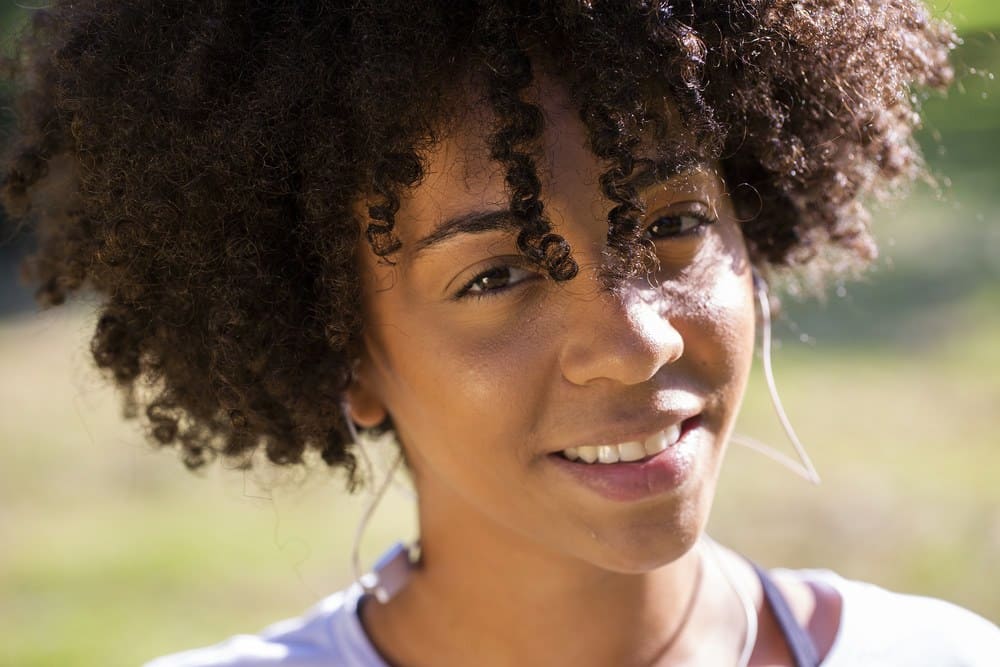
7. Soothing Stress
We’ve already established that ylang-ylang oil can help reduce stress, which is good news for your hair’s long-term health because, as you probably already know, stress can exacerbate hair loss.
It can cause hair to fall out more easily while your scalp doesn’t produce replacement strands. Easing your stress can thus be a hair-saver as well as a lifesaver, and ylang-ylang oil is perfectly suited to both.
The History of Ylang-Ylang Essential Oil
If you aren’t up on your Southeastern Asian and Indochinese crops, there’s a chance you haven’t heard about ylang-ylang oil. In those areas, however, it has been grown natively for thousands of years.
While ylang-ylang is sometimes translated as “flower of flowers,” this actually isn’t an accurate translation.
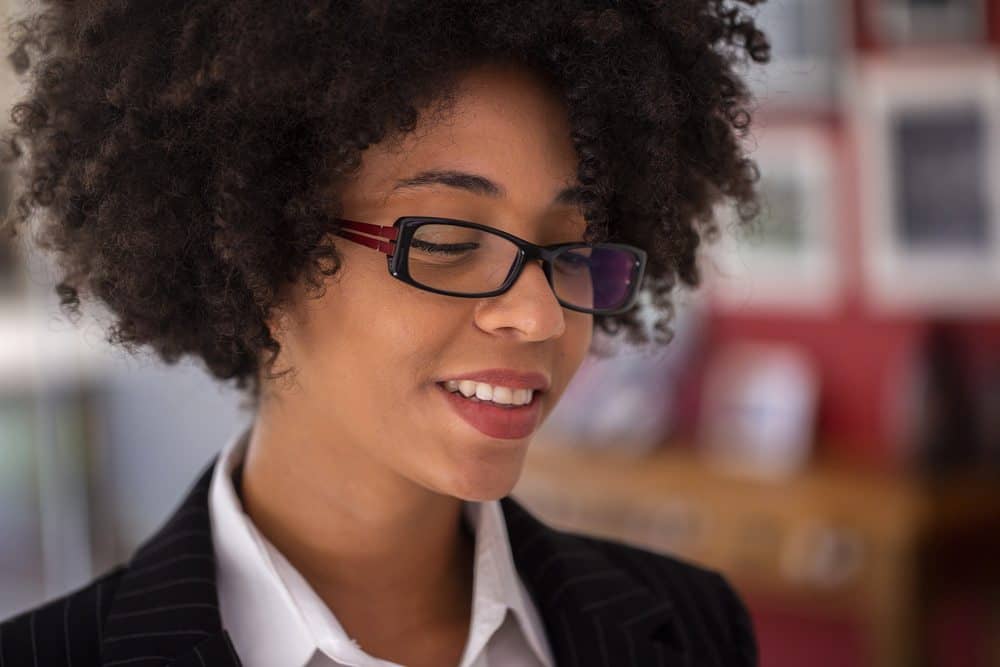
The term is actually taken from the Tagalog term “ilang-ilang,” which is more closely translated as referring to “wilderness.”
Ylang-ylang itself, meanwhile, is the extract taken from the Cananga tree. The trunk of these trees is on the slimmer and smoother side, while the whole tree from top to bottom can reach roughly 82 feet (or 25 m).
It is covered throughout the year with drooping, fragrant flowers.
So it should come as no surprise that “ylang-ylang” is actually the name of a perfume extract taken from these flowers. This is also a possible explanation for where that whole “flower of flowers” nickname comes from as well.
The flowers themselves feature six narrow yellowish-green petals that measure about 16 feet (or 5 cm) long, longer oval leaves that can measure up to 66 feet (or 20 cm) long, and a cluster of oval black fruits hanging around the stalks.
The flowers from these trees are sometimes collected to create leis.
- Chamomile Essential Oil for Hair
- Jasmine Oil Benefits for Hair
- Lavender Oil for Natural Hair
- Sandalwood Essential Oil for Hair
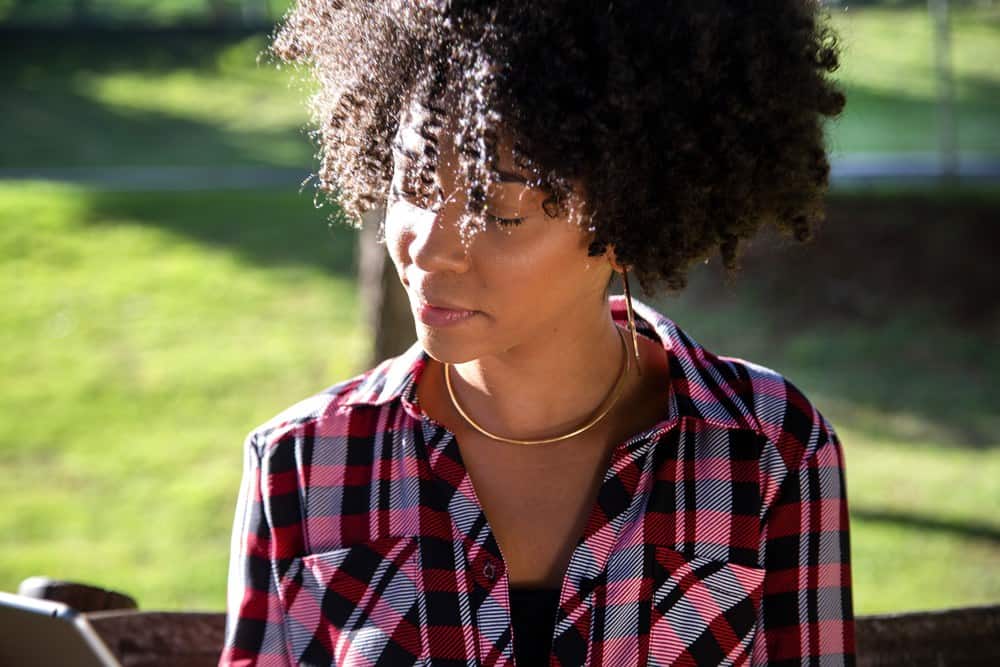
Is Ylang-Ylang Essential Oil Good for Hair?
Ylang-ylang is good for hair and is commonly used in hair care products due to its numerous benefits. It's believed to help improve hair texture and promote healthy hair growth by stimulating blood flow to the scalp. It also has moisturizing properties that can help hydrate dry, brittle hair and reduce the appearance of split ends.
Is Ylang-Ylang Oil Good for Hair Growth?
Ylang-ylang essential oil is good for hair growth because it stimulates blood circulation and promotes healthy scalp conditions. A healthy scalp can support the growth of strong hair. This oil also has moisturizing properties that prevent hair breakage and improve hair texture. However, remember, while ylang-ylang oil may help promote hair growth, it shouldn't be your only solution.
How Do I Apply Ylang-Ylang Oil to My Hair?
To apply ylang-ylang oil to your hair, first, dilute a few drops with a carrier oil such as coconut or jojoba oil. Gently massage the oil mixture into your scalp and hair, then cover with a shower cap or towel and leave it in for at least 30 minutes. Rinse the oil mixture out with warm water.
How Do You Use Ylang-Ylang Oil as a Hair Conditioner?
To use ylang-ylang oil as a hair conditioner, add a few drops of the oil to your regular hair conditioner and mix. Shampoo your hair as usual, apply the ylang-ylang oil conditioner to your hair, leave it on for a few minutes, then rinse it out with cool water. Diluting the oil properly helps you avoid skin irritation.
How Do You Use Ylang-Ylang Oil for Hair Loss?
To use ylang-ylang oil for hair loss, mix a few drops of the oil with a carrier oil like coconut or jojoba oil. Gently massage the mixture into your scalp, and leave it for at least 30 minutes. Ylang-ylang oil stimulates blood circulation and reduces stress, which helps promote hair growth.
Ylang-ylang oil is an intriguing essential oil for curly hair care. Its fragrant nature makes it a natural choice for anyone looking to mix it in with their shampoo and give their hair a bit of extra aromatic oomph.
At the same time, it is a good choice for those looking to sort out split ends and brittle, bristly hair.
With several different preparations, mixture options, and recipes from which to choose, there are a variety of ways you can make ylang-ylang essential oil a part of your hair care regimen and more than enough reasons to try it out.


![[2] Benefits of Ylang Ylang Essential Oil](https://www.curlcentric.com/wp-content/cache/flying-press/88d652256bc7c3b5e45f29a99a167991.jpg)



